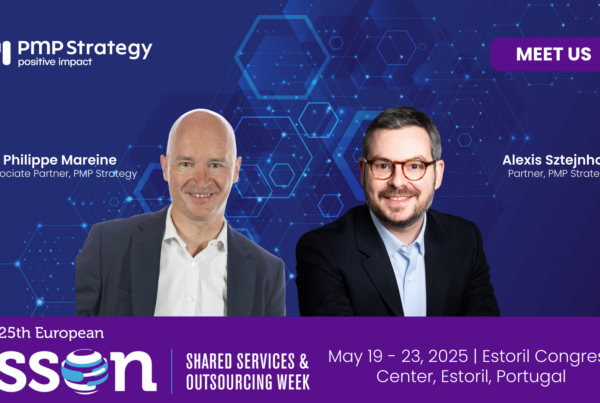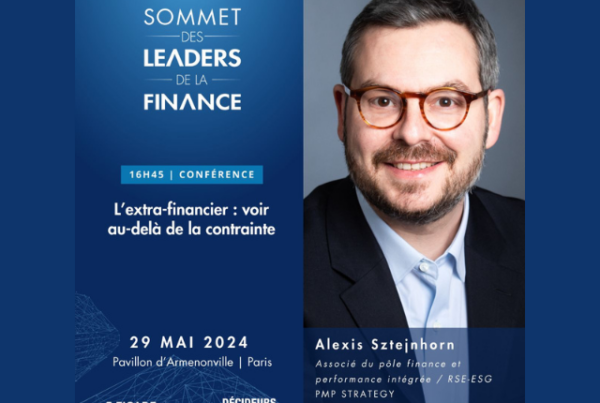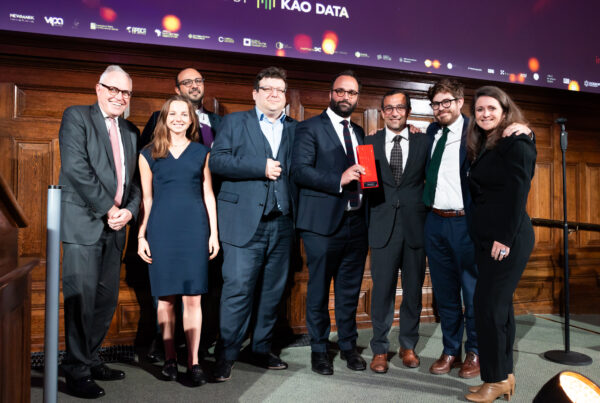Emmanuel Marchant gave us a feedback on the danone.communities adventure he has led since its inception and lessons for the management of the company. Olivier Kayser brought us his experience of initiatives undertaken to set up a sustainable business model.
FEEDBACK ON THIS CONFERENCE
For the cycle of meetings on “managerial innovation”, PMP received Emmanuel Marchant and Olivier Kayser, to better understand what is called “social business”.
Emmanuel, after a stint in strategy consulting, and operational positions at Danone, turned to “social business” by becoming the CEO of ” danone communities “, a project initiated by Franck Riboud and Mohammad Yunus in 2007, materialized by a joint venture, Grameen Danone Food. The first project was a micronutrient fortified yoghurt manufacturing plant in Bangladesh. The aim is to feed some of the world’s poorest people, 60% of Bangladesh’s 160 million people living on less than two euros a day, and facing serious problems of malnutrition.
The originality of the project is to have a social objective, to bring health through food to as many people as possible, but also a business objective, to create a company that generates profits (even if the principle defined with Mohammad Yunus is to reinject any profits in the company, without remuneration of the shareholders).
What notably pushed Danone on these projects also comes from the reading of the thesis of Prahalad, “the fortune at the bottom of the pyramid” which saw a new horizon for the large multinational companies consisting in capturing a share of the 13 000 billion of dollars represented by this market of the “base of the pyramid”, that is to say of the 4 billion people on the planet the poorest. Because, of the 700 million regular customers of Danone worldwide, very few were part of these 4 billion.
Of course, this type of approach can spark a bit of skepticism, and guests had a few questions like this: Does any of this have an impact? A small yoghurt factory in Bangladesh, not enough to eradicate malnutrition in the world, … necessarily, you need consistency, energy, will … We felt that Emmanuel was not lacking . And then, these projects benefit from all the support of Danone employees; those responsible for these projects are not dedicated to “social business”; they usually also have an operational position in the real life of competition in developed markets. This is what Danone calls the principle of “friction”.
Olivier Kayser, the second guest, completed Emmanuel. Olivier, after eighteen years at Mac Kinsey, has also changed his life, or almost. He became vice-president of the Ashoka association, a global association whose mission is to promote social entrepreneurship by supporting social entrepreneurs.
To continue this approach, he created the company Hystra in 2009, in order to help large companies develop “social business” projects. Because, he is convinced, to meet the ambition of this new world, we must create new industrial sectors, entrepreneurs must emerge in Bangladesh and elsewhere, to bring out new business models to meet the needs of target populations, on housing, food, energy, … There is no lack of opportunities and ideas.
We have to create new strategies – Olivier Kayser, as a good former consultant, coined the word “hybrid strategies” hence the name of his company – and work on three pillars at the same time: growth (new growth will come from poor markets), innovation (new models, social innovation), and meaning (new business priorities).
Listening to Emmanuel and Olivier, we had the impression of welcoming pioneers of a new world, who both want to carry an ambition and an ideal, while remaining pragmatic and business.
Perhaps they made some of the guests want to follow in their footsteps.
Because, in these times of crisis, of tears over the rates of growth which are not approaching much, this breath, and these prospects, could only give us a little of this favorable wind, which we are all going to need. more and more.




